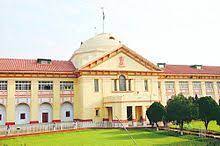The Patna High Court dismissed a Public Interest Litigation (PIL) filed seeking a direction to the respondent authorities to provide pedestrian under pass near link road connecting N.H.-331 and 31 in Mohalla Shyamchak (Naya Tola) on under-construction flyover on NH 331 so that basic education of Children of Shyamchak along with other amenities of large population residing one side of reinforced wall over N.H.-331 would be maintained and fundamental right of Children to get free education could be protected.
Ajay Kumar Singh ,Counsel for the petitioner contended that on account of inaction of the authorities in providing pedestrian under pass near Shyamchak link road is apart from violative of Article 21 (A) of the Constitution of India transgressing the provisions of Article 326 of the Constitution of India.
It is contended that the children of Shyamchak mohalla are unable to attend the schools, which is situated on the other side of the railway line and the senior citizens are also not able to cast their votes as the population is residing on one side of the reinforced wall/R.O.B and the voting booth is situated on the other side.
Section 19 of the Railways Act, 1989 clearly stipulates that “Where a railway administration has constructed lines of rails across a public road at the same level, the State Government or the local authority maintaining the road, may, at any time, in the interest of public safety, require the railway administration to take the road either under or over the railway by means of a bridge or arch with convenient ascents and descents and other convenient approaches, instead of crossing the road on the level, or to execute such other works as may, in the circumstances of the case, appear to the State Government to be best adapted for removing the danger.”
The Division Bench of Chief Justice K. Vinod Chandran and Justice Harish Kumar noted that the construction of overbridges and under-bridges are within the domain of the Railway Administration and the State Government, moreover, the petitioner has already raised his grievance before the competent authority and it is for them to look into the matter.
Always, a balance has to be struck insofar as a development activity intended at larger public good and individual rights. Railway lines are essential for not only movement of people but also goods and it is in the larger interest of the public and the economy itself. It is not the case of the petitioner that there is absolutely no access to the other side of the railway-line and the grievance can only be that a more circuitous route has to be taken. A number of factors arise in deciding the construction of an under-pass or an over-bridge; like the population and the density of transport. It is well within the policy domain of the Railways and the State and nothing is shown to invoke the extra-ordinary powers under Article 226 of the Constitution of India, the High Court observed


